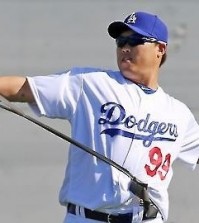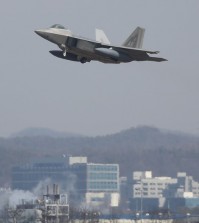- California Assembly OKs highest minimum wage in nation
- S. Korea unveils first graphic cigarette warnings
- US joins with South Korea, Japan in bid to deter North Korea
- LPGA golfer Chun In-gee finally back in action
- S. Korea won’t be top seed in final World Cup qualification round
- US men’s soccer misses 2nd straight Olympics
- US back on track in qualifying with 4-0 win over Guatemala
- High-intensity workout injuries spawn cottage industry
- CDC expands range of Zika mosquitoes into parts of Northeast
- Who knew? ‘The Walking Dead’ is helping families connect
Korea to get dose of ‘Moneyball’
By Kim Young-jin
For the casual sports fans, the Society for American Baseball Research (SABR) is synonymous with “sabermetrics,” the use of advanced statistical analysis popularized by the 2011 film “Moneyball.”
SABR is, in fact, closely linked with the mathematical tools behind lesser-known but influential stats such as “wins above replacement,” “extrapolated runs” and “runs created.”
But the society is about more than number crunching, its members say. It’s about studying the history of the game and improving and promoting it.
It’s also the latest addition to the Korean baseball community.
“What we’re trying to do is to promote baseball, promote Korean baseball, promote research and learning,” said Patrick Bourgo, co-chair of SABR’s new Korea chapter, which held its first meeting last month in Seoul. “Koreans are getting interested in baseball history, advanced metrics and lots of different types of baseball research. There was a good opportunity (to open) the branch,” added Brougo, an American who works in Seoul as a consultant and operates the blog Korean Baseball History.
The idea came out of conversations between Bourgo and other fans who noticed a convergence between foreigners interested in the Korean game, and Koreans interested in analytics and history.
Founded in 1971 by researcher Bob Davids, SABR aims to foster the research and dissemination of the sport’s history, while generating interest in the game. It has over 60 other branches, including those in North America, Japan, Italy and Latin America.
The chapter comes at a time of heightened interest in Korean baseball following the success of Los Angeles Dodgers pitcher Ryu Hyun-jin and Texas Rangers outfielder Choo Shin-soo. Bourgo said the organization was “definitely excited” to hear about his efforts to establish the branch. “Korea is big in baseball. The exchange between Major League Baseball and Korea is going to continue to get bigger.”
Other signs of the KBO’s deepening international involvement include a recent strategic partnership agreement between the Nexen Heroes and reigning World Series champion Boston Red Sox; as well as the decision to add an extra roster spot for foreign players.
The Arizona-based group is best known for its annual Analytics Conference. But it also has dozens of groups devoted to specific research areas including the cultural impact of women in baseball.
Sabermetrics began to rise in the 1980s, spurred by baseball writer Bill James, who introduced stats such as “runs created,” which quantifies a player’s contribution to runs scored.
Some enthusiasts say publically-available advanced statistics are still hard to come by here. “Sabermetrics is about understanding baseball from an analytical and objective standpoint. That’s not to say numbers are everything. But if you can use something to your advantage to make something better, than I’m definitely in favor of that,” Bourgo said.
He believes the SABR chapter can help fill the dearth of English information about Korean baseball. “I’m hoping that we’re going to be able to facilitate much more of an exchange between what have previously been separate, English and Korean language baseball discussions. We don’t want language to be a barrier. “If there are Korean researchers who need help in English language research, then we can do that; if we need some help with Korean-related research we may see if we can get help that way,” he said.
Individual projects by current members include an English-language KBO website and a documentary about Korea’s cheering culture. Bourgo said chapter meetings are open to the public and envisioned a group of members including scouts, bloggers, journalists and fans to attend. Projects could include constructing comprehensive Wikipedia pages for Korean players, helping the community, and putting on a conference in 2015.
Mostly, meetings are about talking baseball, Bourgo said, stressing that ordinary fans are more than welcome. “It can be as informal as coming to a coffee shop and talking about baseball. It’s very inclusive and if you’re English isn’t great, that’s okay,” he said.
For more information, visit www.facebook.com/groups/sabrkorea.

















